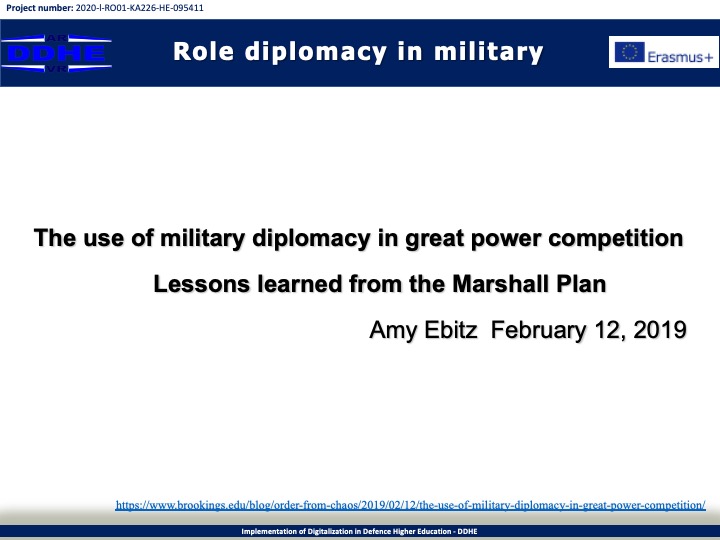
Role diplomacy in military
Looked upon as one of our government’s greatest achievements, the European Recovery Plan post-World War II, which became the Marshall Plan, was central to the recovery of Europe and helped to rebuild the war-torn European continent and construct a stable foundation on which future allies could grow economically and structurally. Far from being a singular effort to stave off famine and chaos, the plan—and the billions in aid that accompanied it—“was the centerpiece of Harry Truman’s effort to contain communism abroad,” as Paul Light wrote in 2002. The events of World War II, combined with the after-effects and execution of the Marshall Plan, launched the United States into the role of single superpower. Democratic governance established under, among other things, the leadership of the U.S. military during reconstruction provided security, as well as a platform for the resulting social and economic development of Germany and Japan in particular.
To maintain this position in a new era of great power competition today, the United States needs to continue to invest in the world and commit to the growth of security and stability abroad. Currently, overseas military and economic engagement occur sporadically and somewhat independently. Instead, what is needed is a written, integrated military, economic, and social campaign plan to mitigate terrorism, migrant flows, and other non-state threats to security and prosperity around the world. Such an effort would, in fact, be connected to great power dynamics: It can be a means to exercise national power to counter Chinese development and military investments by taking a long-term approach to nation-building and fostering stable future partners, just as the Marshall Plan once did vis-à-vis the Soviet Union. Specifically, this kind of effort should be undertaken toward Africa and Latin America, to shore up areas that are in the strategic backyards of the United States and its allies in Europe.
Treść jest rozpowszechniana na licencji Pewne Prawa Zastrzeżone Uznanie Autorstwa Na Tych Samych Warunkach 4.0